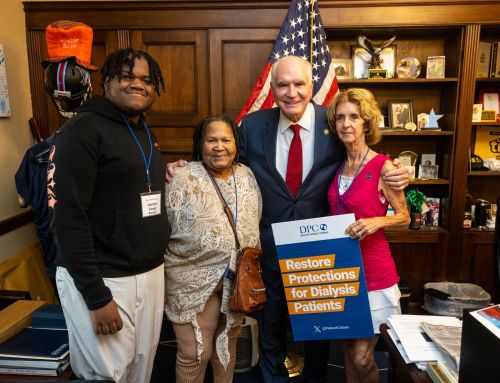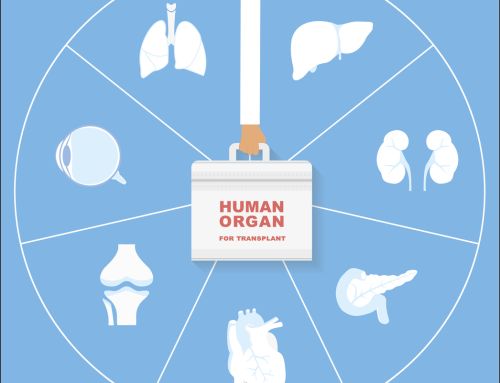Washington, DC (October 01, 2025) — Dialysis Patient Citizens (DPC), the leading advocacy organization for dialysis patients nationwide, is pleased to announce the election of Quiana Bishop of Detroit, Michigan, to serve as President of the Board of Directors. Previously, Ms. Bishop served as Vice President of the Board of Directors for DPC.
“Joining the Board of Directors at Dialysis Patient Citizens (DPC) changed my life. Suddenly, I wasn’t just a patient – I was a voice, a leader, and an advocate,” said Ms. Bishop. “Through DPC, I’ve been able to share my story with lawmakers and help push for better policies for people like me. It reminded me that our lived experiences have the power to change lives – and laws. I am honored to continue that advocacy as President of the Board of Directors at DPC, and I look forward to helping other patient advocates like myself share their stories and shape national kidney care policy.”
“All of us at DPC are excited to welcome Quiana Bishop as our new Board of Directors President,” said Hrant Jamgochian, CEO of Dialysis Patient Citizens. “Quiana’s advocacy and leadership on the Board of Directors has been invaluable to advancing our mission of improving the quality of life for all dialysis patients. We know she will continue to play a critical role in helping DPC grow and thrive for years to come.”
Ms. Bishop has been on hemodialysis for eight years. She is a native of Chicago, Illinois who now lives in Detroit, where she is a single mother of a now 20-year-old son. Before her diagnosis, Ms. Bishop worked as an elementary school teacher and an infant room teacher. While she does not qualify for a kidney transplant due to medical issues, she continues to thrive and is a passionate advocate for DPC.
Ms. Bishop shared her story in a letter published by the Detroit Free Press, where she called on Congress to protect dialysis patient access to private insurance coverage at the national level.
Background
Federal law has long allowed End-Stage Renal Disease (ESRD) patients to remain on employer-sponsored health coverage for 30 months following their diagnosis, before many transition to Medicare as their primary insurance provider. This period is critical to help ensure a smooth transition onto dialysis, to help facilitate a potentially life-saving transplant, to protect dependent coverage which is not available in Medicare, and to ensure financial stability for patients during this difficult time. However, in Marietta Memorial Hospital v. Davita, the Supreme Court ruling weakened longstanding patient protections that could force patients to drop coverage and switch to Medicare prematurely.
This upended an interpretation of existing law which stood for 40 years, wherein employers understood the law to prohibit limitations specific to dialysis treatments. Employer-sponsored plans hold enormous importance for many patients and their families, often offering more comprehensive care options not covered by Medicare.
DPC is working to pass the bipartisan Restore Protections for Dialysis Patients Act (S. 1173/H.R. 2199) to restore access to critical health insurance coverage for patients who choose it. The bill was introduced in the Senate by Senators Cory Booker (D-NJ), Bill Cassidy (R-LA), Kevin Cramer (R-ND), and Martin Heinrich (D-NM), and it was introduced in the House by Representatives Mike Kelly (R-PA), Yvette Clarke (D-NY), Neal Dunn (R-FL), Danny Davis (D-IL), John Joyce (R-PA), and Raul Ruiz (D-CA).
###




























